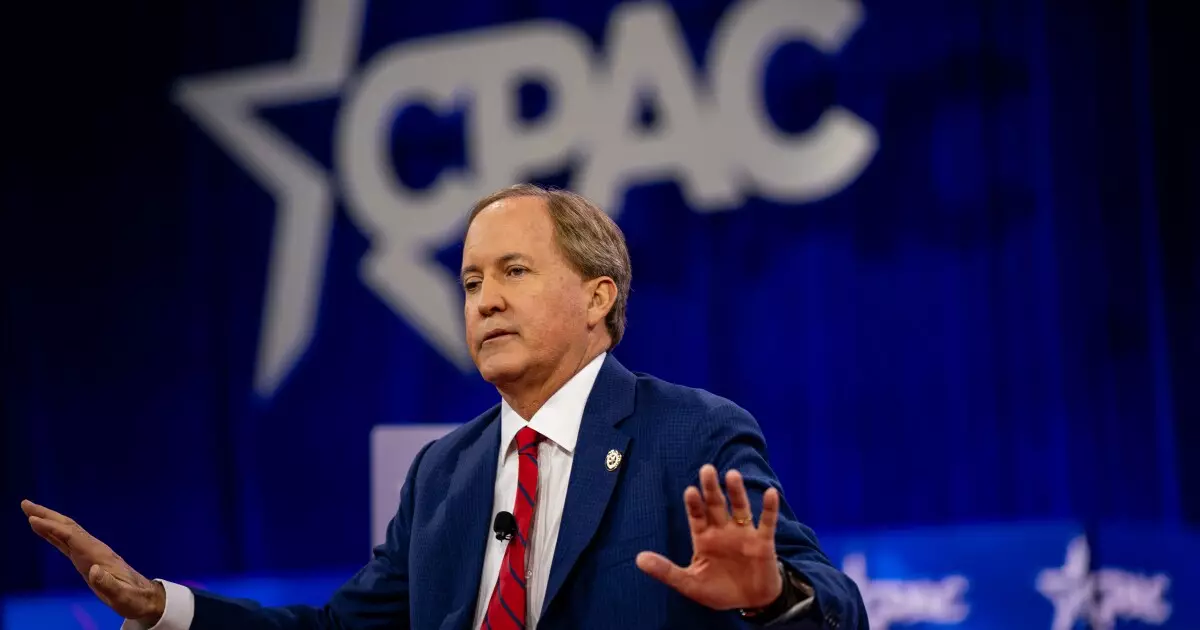The landscape of environmental responsibility in the financial sector has evolved significantly in recent years, particularly with initiatives like the Net-Zero Banking Alliance (NZBA). This alliance, aimed at achieving net-zero greenhouse gas emissions by 2050, has attracted diverse financial institutions committed to addressing climate change. However, this also puts them at odds with certain legislative measures in states like Texas. The recent moves by major players like Bank of America, Morgan Stanley, and JP Morgan to withdraw from the NZBA signal not just a shift in corporate strategy, but a reaction to the legal environment shaped by Texas Attorney General Ken Paxton’s office.
In 2021, Texas enacted a law that prohibits contracts exceeding $100,000 with entities that boycott the fossil fuel industry. This legislative action was framed as a way to protect Texas’s profound investments in oil and gas—a pillar of its economy. The implications of this law extend to the financial industry, as it could classify banks as “energy boycotters” for their involvement in initiatives like the NZBA. Paxton’s reviews of these banks reflect a rigorous enforcement approach to ensure compliance with Texas laws, indicating that corporate social responsibility efforts related to climate change must align with state legislation or risk significant financial consequences.
In an announcement, Attorney General Paxton praised the withdrawals from the NZBA, framing them as “a major step in the right direction.” This rhetoric underscores a narrative that positions Texas’s approach to energy and environmental policy as fundamentally at odds with what he characterizes as “radical” initiatives. His assertion that these banks’ previous affiliations with the NZBA potentially hindered their ability to contract with Texas governmental entities raises questions about the balance between corporate responsibility and legal compliance. The implications for banks could be severe, fostering a climate where only those that abandon progressive environmental commitments can safely operate within Texas.
As of January 2024, Paxton’s office advanced its review process, effectively stalling the business operations of several banks, including Barclays, which was officially banned due to a lack of compliance. Meanwhile, Wells Fargo, after its own withdrawal from the NZBA, regained the ability to work with Texas local governments. However, as the scrutiny tightens, banks remaining under review, such as RBC, are under pressure to clarify their participation in the NZBA and how it aligns with their operational practices in Texas. This reflects an ongoing tension between financial institutions seeking to adhere to global sustainability goals while facing pressures from state governments prioritizing the fossil fuel sector.
The actions taken by Paxton and the resulting legal framework are not without controversy. A business group has raised questions about the constitutionality of the fossil fuel boycott law, leading to legal challenges in federal court. This lawsuit could potentially reshuffle the deck, as the outcome may have far-reaching consequences for how businesses engage with state laws versus corporate social responsibility initiatives.
Additionally, the financial implications of this situation are significant for municipal bond markets in Texas, where banks must navigate a dual obligation: to comply with state laws and respond to growing environmental pressures from stakeholders advocating for sustainability. Should the legal challenges succeed, we could witness a realignment where financial institutions regain the flexibility to pursue net-zero objectives without fear of punitive measures.
Looking ahead, the unfolding scenario in Texas may serve as a bellwether for similar conflicts elsewhere. As environmental concerns grow, so too will the pressure on financial institutions to adopt sustainable practices. However, as this case illustrates, the path forward for banks operating in states with restrictive laws will require a careful balancing act of adhering to both legal mandates and global environmental trends. The outcome of these tensions will shape the future landscape of financing in Texas and potentially serve as a blueprint for or against similar state policies nationwide.

